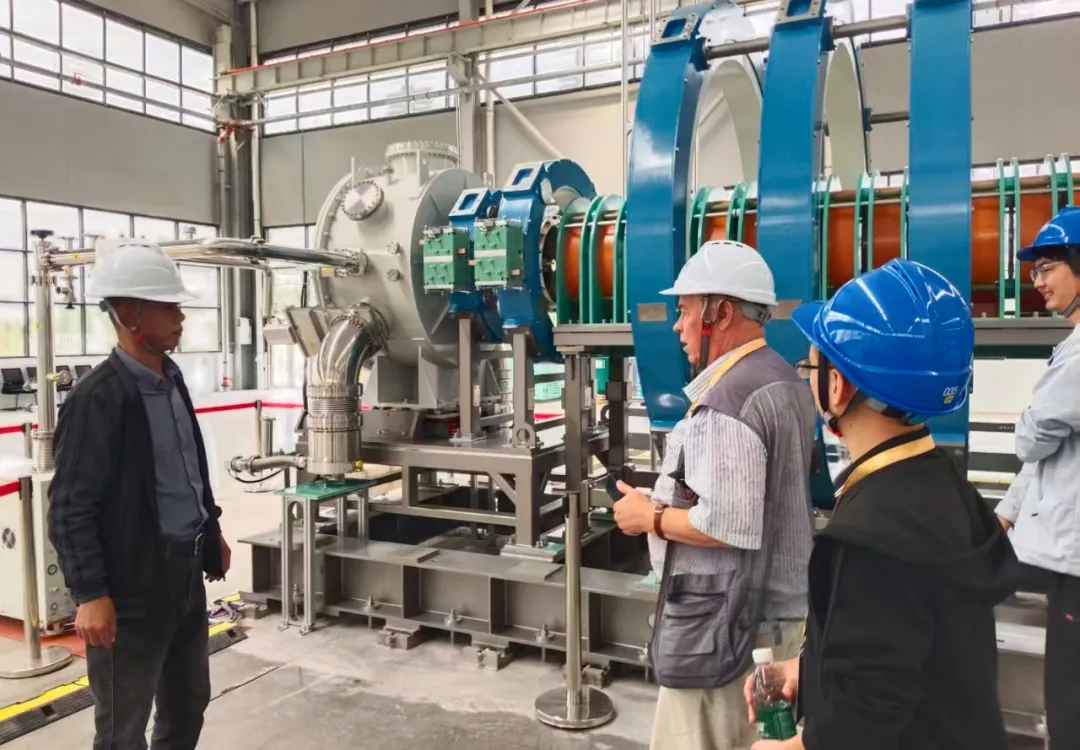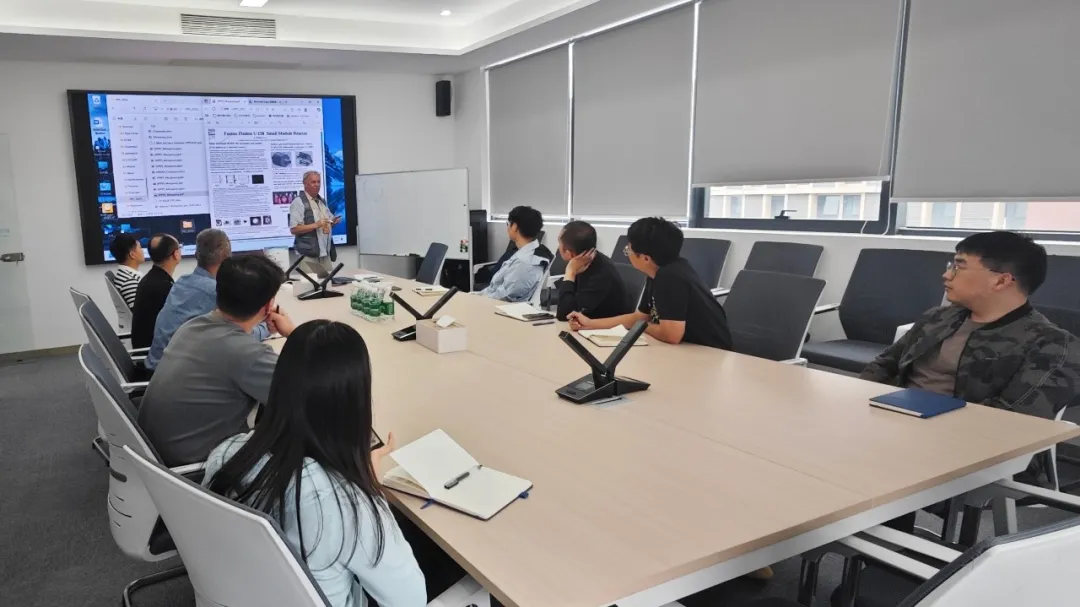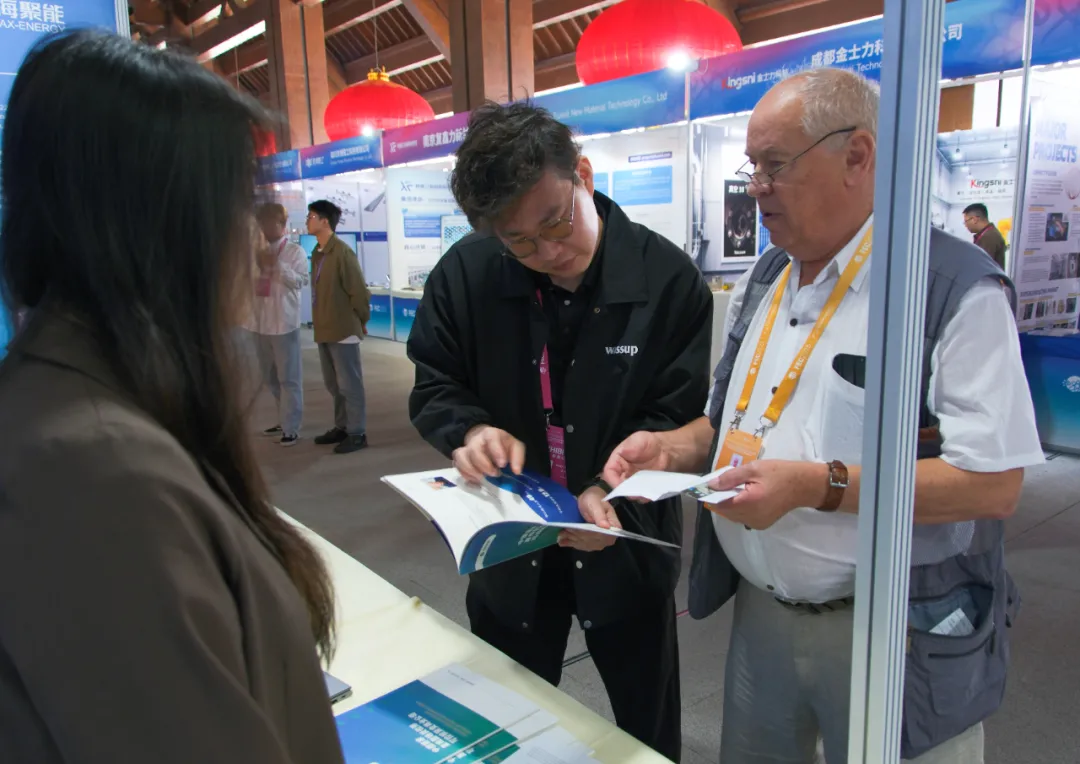Industry Exchange | Professor Alexander Mozgovoy of the Lebedev Physical Institute Visits HHMAX-ENERGY for Exchange and Collaboration
On October 17, Professor Alexander Mozgovoy from the Lebedev Physical Institute in Russia visited HHMAX-ENERGY (Chengdu) Technology Co., Ltd. He toured the company's first-generation fusion device HHMAX-901 and engaged in discussions with the company's R&D team regarding the research and application of FRC technology.
During the Fusion Energy Conference, Professor A. Mozgovoy visited the HHMAX-ENERGY booth for discussions.
The Lebedev Physical Institute (Russian: Физический институт имени П.Н. Лебедева Российской академии наук <ФИАН>) is located in Moscow. It is a specialized research institution in physics in Russia and one of the oldest research institutions in the country. During his participation in the 30th IAEA Conference on Fusion Energy in Chengdu, Professor A. Mozgovoy of the Lebedev Institute visited the HHMAX-ENERGY booth multiple times for discussions. He expressed strong interest in the company's HHMAX-901 linear field reversal configuration (FRC) device and highly commended the company's research and project progress.


Professor A. Mozgovoy visited the HHMAX Concentrator R&D Base for an exchange tour.
On October 17, A. Mozgovoy visited the company's equipment R&D base, conducted an on-site inspection of the HHMAX-901 unit, gained detailed insights into the unit's construction, commissioning, and future applications, and held discussions with the company's R&D team.
At the meeting, HHMAXEnergy introduced the company's research and progress in FRC technology development and facility construction. A. Mozgovoy presented the Lebedev Physical Institute's latest advancements in FRC technology research, specifically the approach of using fusion neutrons to trigger uranium-238 fission, thereby establishing a pathway for next-generation hybrid energy systems. This solution ensures the safe utilization of nuclear energy under conditions of nearly unlimited fuel supply. Both parties also discussed the high-energy acceleration characteristics of FRC, noting its potential as an ideal propulsion solution for future deep-space exploration missions. They expressed their commitment to maintaining ongoing communication to jointly advance the application of FRC technology and the commercialization of controlled nuclear fusion.
News Extension: The Lebedev Physical Institute is a comprehensive physics research institution under the Russian Academy of Sciences, established in 1934. Its research spans astrophysics, quantum physics, solid-state physics, and nuclear physics. The institute comprises eight major divisions, including Quantum Radio Physics and Theoretical Physics, and houses over 40 research units such as the Space Electronics and Laser Nuclear Fusion laboratories. It has nurtured seven Nobel laureates. The institute traces its origins to the Biophysical Institute founded in 1919, with Vavilov serving as its first director. Through subsequent integration, it evolved into a multidisciplinary collaborative research system. Its scientific framework centers on fundamental physics while progressively expanding into space technology applications and experimental apparatus development. Research directions span cutting-edge fields such as high-energy physics experiments and space radiation analysis, with dedicated institutions including the Space Research Center and the Neutron Physics Department.



